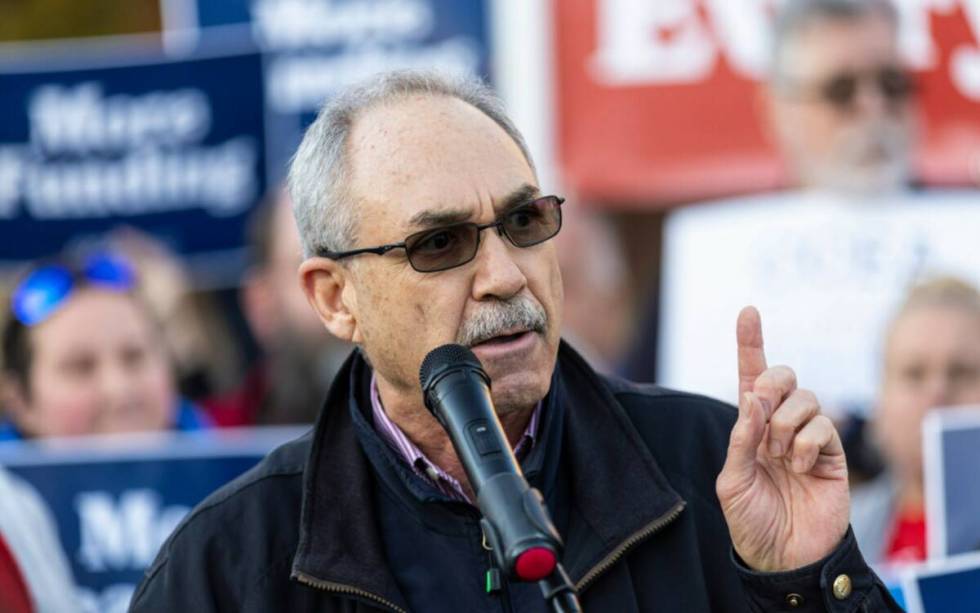VICTOR JOECKS: Looming CCEA strike shows more money didn’t fix education

If more money could fix Nevada’s broken education system, the Clark County Education Association wouldn’t be threatening to strike.
The first day of classes in the Clark County School District is two weeks away. New teachers report this Wednesday. Most teachers begin work Aug. 2. At least, that’s what’s supposed to happen.
The union and its executive director, John Vellardita, have all but promised that they will strike without a new contract. The union and district are currently locked in bitter negotiations. Part of the union’s strategy is calling for Superintendent Jesus Jara to be fired. Subtle, Vellardita isn’t.
The dispute is largely over money. The union wants a 10 percent pay increase this year, an 8 percent hike next year and several other pay hikes. Jara said the union’s proposal isn’t financially sustainable. He favors a plan that would boost pay for the vast majority of teachers by revamping the salary schedule. He wants it to be based on years of service and education.
That’s far from merit pay, but the current system is convoluted. That’s a problem when the district is trying to attract experienced teachers from other states. The district said 150 job candidates declined employment after learning they would be making less than expected.
Most people aren’t going to dig into these details. They’re going to be confused. Didn’t Gov. Joe Lombardo and the Legislature just increase education spending by more than $2 billion? Where did all the money go?
The union has a ready answer. It claims the district is being stingy.
“CCSD still refuses to pay educators what they deserve,” it said in a recent statement. It said that the district trustees can pay Jara more, but “they can’t give educators a raise.”
See if you can spot the false dichotomy. The union wants you to believe there are only two options — teachers receiving the pay hikes they demand or teachers not being paid more. False. The district is ready and willing to pay teachers more — just not as much and in the manner the union wants.
This whole episode is a case study in why spending more hasn’t and won’t improve Nevada education.
First, notice what’s happening. Most of the new money will go to paying the same people more to do the same thing in the same place. That won’t fix anything and will only make it more expensive.
One thing that would help is to pay experienced teachers more money to work in low-performing schools. Those schools have a disproportionate number of teacher openings. A small portion of the money will probably go toward that. The district wants that funding to be incentive pay. The union wants a salary adjustment.
Nevada’s collective bargaining law gives the union a de facto veto over many district actions. For instance, the district wants to extend the school day at some poorly performing schools and pay teachers there more. But the union won’t agree to the contract waivers necessary to deviate from the standard contract. It’s absurd that the district needs the union’s permission for programs such as this.
Finally, the most important thing to realize is that the union’s demands are dynamic. If the Legislature allocated even more money, the union wouldn’t be content. It would be insisting the district fork over even larger increases. Similarly, if the Legislature kept funding flat, union officials would claim a much more modest increase would be satisfactory.
This is why it’s so easy to predict that the union and education establishment will soon be demanding more money. You can’t meet someone’s demands when what they actually want is more.
The union’s strategy depends on public ignorance — of which there is no shortage. But if you find yourself curious why repeated spending increases keep producing the same problems, now you know.
Victor Joecks’ column appears in the Opinion section each Sunday, Wednesday and Friday. Contact him at vjoecks@reviewjournal.com or 702-383-4698. Follow @victorjoecks on Twitter.